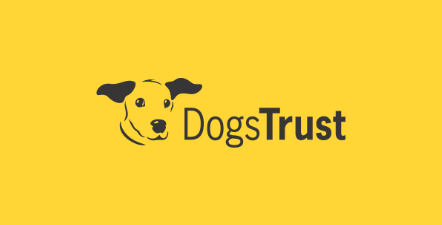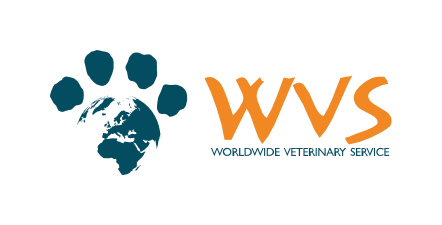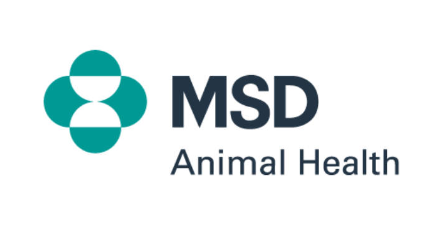
Education and community engagement is integral to our mass vaccination projects.
Children are at high risk of dog bites and contracting rabies. Forty percent of reported rabies cases worldwide are children under the age of fifteen. In our project areas, the proportion of children dying is often even higher. Rabies most often persists in poor communities and rural regions of developing countries in Africa and Asia. If the risks are widely understood and appropriate dog bite treatment is well known – rabies is 100% preventable.
Our education sessions are aimed to empower children, their teachers and their families with the knowledge to protect themselves from bites, prevent rabies and save lives. We encourage members of the public to bring their dogs for vaccination and sterilisation, and raise awareness of our emergency rabies response teams. We are creating communities who know how to protect themselves from rabies and who act to support rabies control.
We have now educated more than 8 million children worldwide.
Experienced educators deliver the 'Rabies prevention' lesson directly to children in their classes, and assemblies. We teach children from age five up to sixteen - focusing particularly on primary schools. Schools range from the small and hard to get to, with enrolments as low as ten children in Goa's rural regions, right up to huge urban centres of up to 10,000 children in some Blantyre schools.
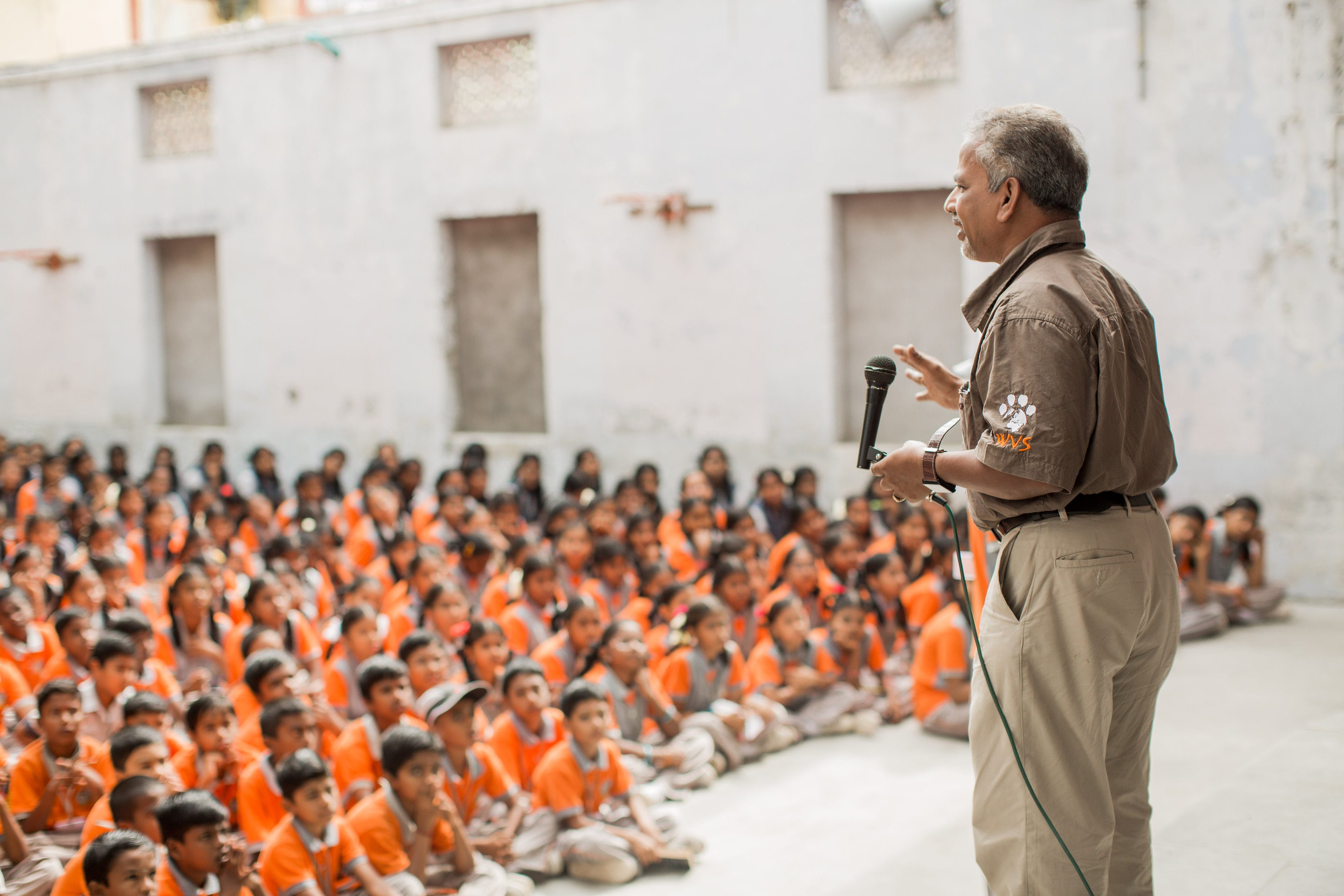
The 'Rabies prevention' lesson teaches four key messages:
- Rabies is serious - How the rabies virus transmits and its effect on the body
- How to be safe around dogs - Understanding dog behaviour for safe and friendly interaction and knowing the warning signs to prevent being bitten.
- First aid - Life-saving steps to avoid rabies infection if bitten by a dog.
- Community protection - Understanding the nature of how vaccination works and encouraging community action.
We use an array of teaching methods tailored for each respective country and campaign including drawing, role play, flashcards, video, props and demonstration to deliver the message of rabies prevention and ensure it is memorable. Each section of the session has plenary activities aimed to review what has been learnt and not only make sure all children understand the message, but also that the children take the message home to their parents, family and friends.
The teachers' pack include lesson plans, teachers notes, curricula links, power point presentations, worksheets, extension activities and FAQs. Our methods are simple, cost effective and replicable.
For every school we visit - we record who, when, where and what we did to teach children and communities via the WVS App. This allows for real-time project management and enables us to produce mapped records of our reach. We also complete research to understand the barriers and behaviours that perpetuate human life loss to rabies, and measure how our interventions work to address these. Our local team keep in touch with schools and communities to receive feedback and give ongoing support.
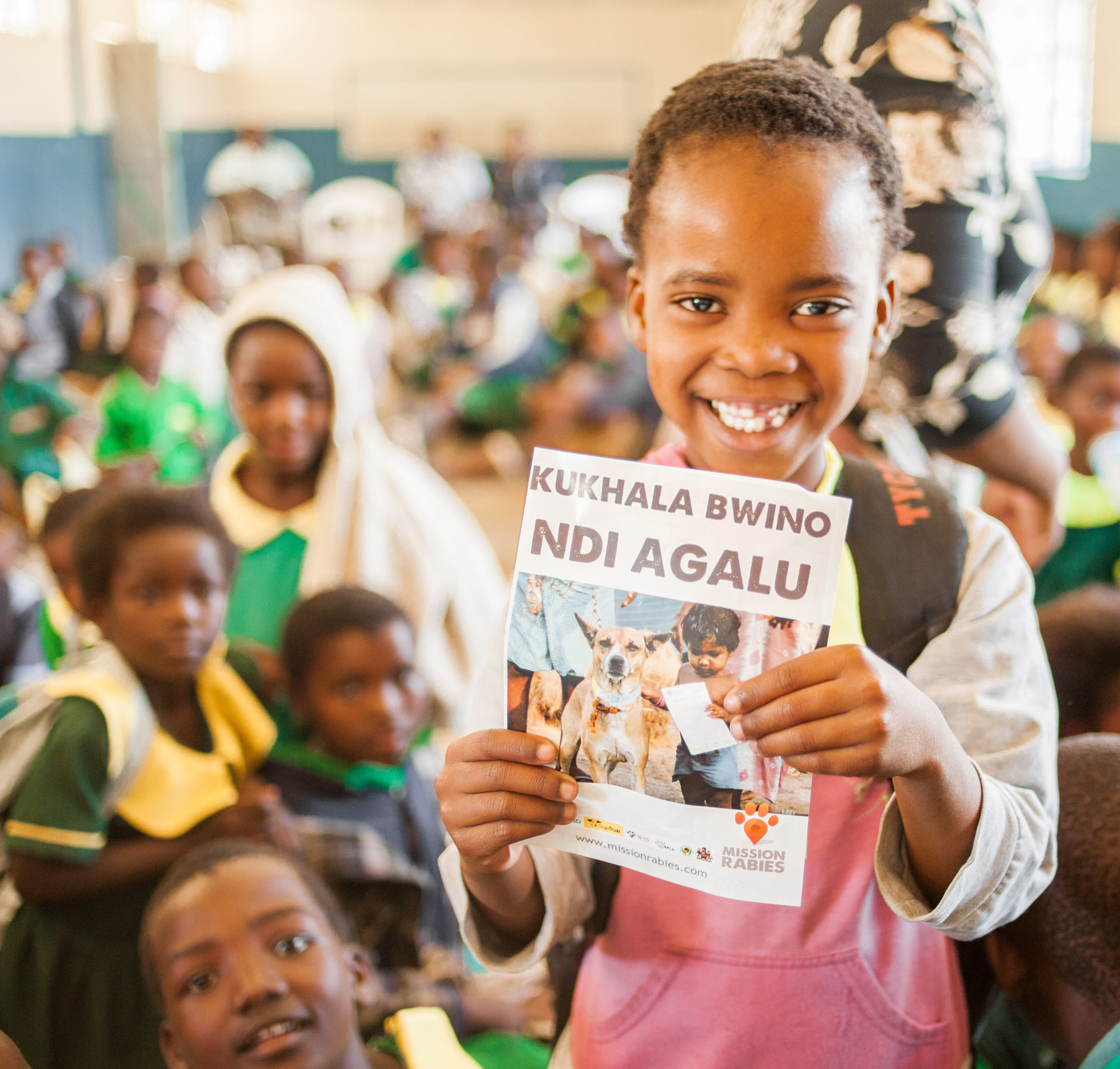
Alongside our work within schools, we also extend our educational outreach to the wider local community. In the lead up to a vaccination campaign, teams raise awareness by speaking with community groups and key members of the community. We encourage communities to recognise and report rabid dogs, care for and protect dogs with vaccination, and help bite victims get treatment through active and thought-provoking sessions.
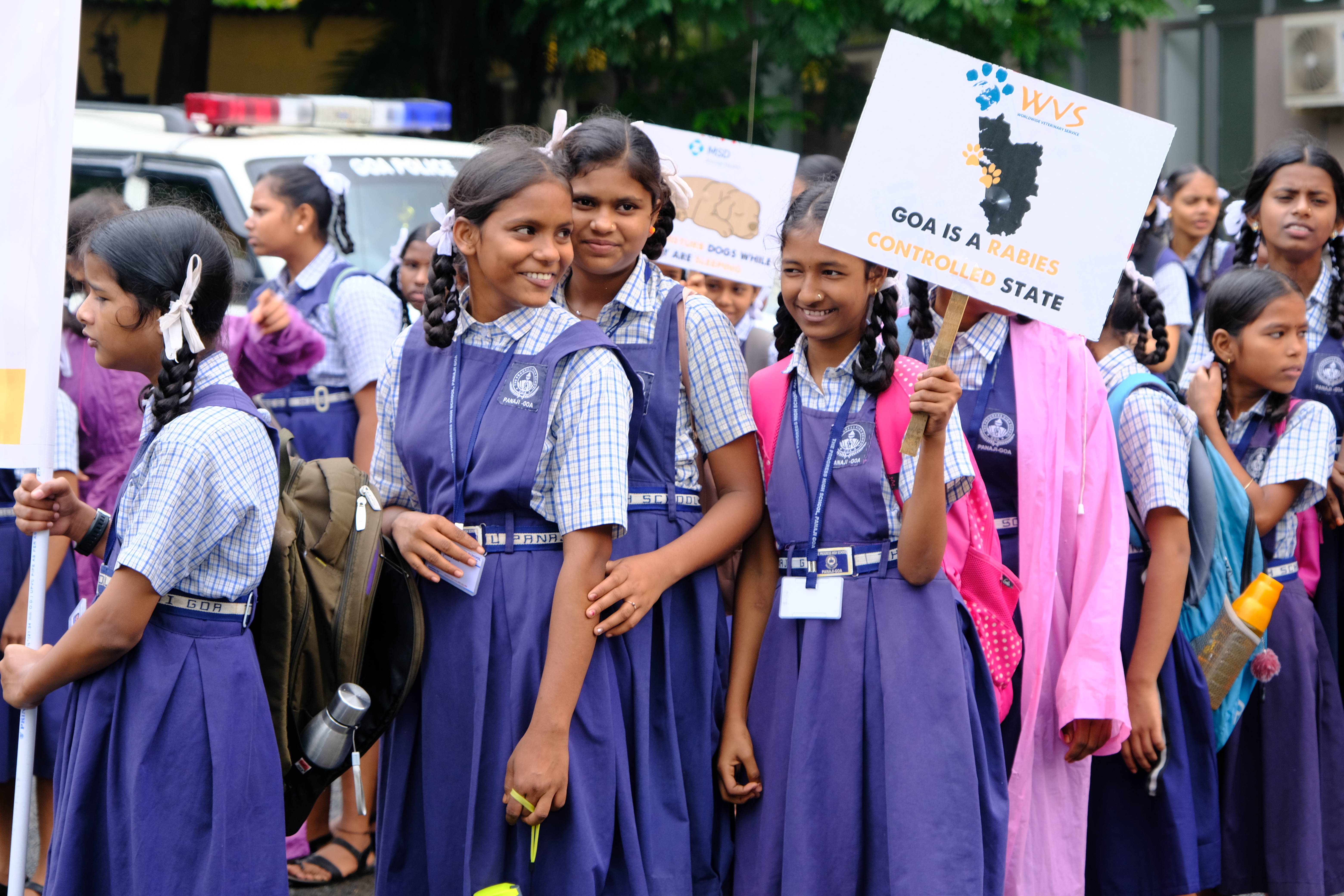
- Follow our Twitter and Facebook for the latest updates from the teams.
- Help support the programme by fundraising so we can reach more schools and communities in our project areas!
- Give £3 to teach a child and vaccinate a dog
- Support our schools for just £25 per month
- Could your company help us do more? Make us your Charity of the Year, or send out a team of volunteers - get in touch with fundraising@missionrabies.com to learn how a partnership could benefit you.
